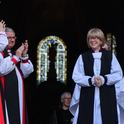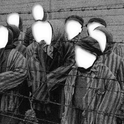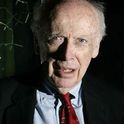My first experience of bishops was my mother yelling at one of them over the phone. He was the Episcopal bishop of Minnesota, and I went to an Episcopalian high school where the headmaster had just fired the ice hockey coach for not turning in some of the team who’d mooned out the bus windows on the way home from a game. Since he’d already given the players a stern dressing down, the coach believed that further punishment would be unjust. He was the son of one of my father’s colleagues. The headmaster was the son of a friend of the bishop. What I recall best is my horrified amusement at my mother shouting, “I am not your ‘good woman’. Don’t you ‘good woman’ me!”
I’m thinking about bishops because the bishop of my diocese, Ely, is heading north this summer. He will be the new bishop of Lincoln. This means that the Diocese of Ely Vacancy in See Committee is moving into gear. This committee is made up of both lay and ordained people and will be preparing a description of the diocese and its mission and ministry, the difficulties—these are called “challenges”— it faces, and what kind of a bishop they hope we’ll get. They will be deciding whether to express a view as to whether the next bishop of Ely will ordain women. They will decide if they want to make this, and the rest of the Statement of Needs, public or keep it confidential.
They’ll also be electing from among their number the Diocesan representatives to the Crown Nominations Commission, which does the actual selecting of bishops. That committee is made up of six members of our Vacancy in See Committee, plus the archbishops of Canterbury and York, six members of General Synod (three clergy and three lay people), the prime minister’s appointments secretary and the archbishops’ appointments secretary.
In other words, two committees will choose our next bishop: one local and one national but with representation from the local group. The composition of these committees has become noticeably more socially conservative over the past decade. At the same time, the culture wars being fought around the definition and purpose of marriage, the participation of gay couples in the life of the church, and the related question of relations between the sexes, are bloodier than ever. We have bishops who have never ordained or received communion from a woman, and a bishop for whom it is an inescapable truth that women cannot lead or teach men. They’re there for the people who can’t accept a bishop who’s liberal on these matters.
There’s no special bishop for those who are socially liberal, though. We have to take whomever we’re sent. When you’re part of a hierarchical church you can’t ignore your bishop even when you’d like to. History, canon law, liturgy, tradition: all the structures of the church bind us together. Even (or especially) when they characterise themselves as helpless, bishops are princes of the Church.
I arrived in my old diocese of Worcester 22 years ago, shortly after Philip Goodrich was succeeded by Peter Selby. My fellow curates and I had never known Philip, who was said to have had the habit of turning up on vicarage doorsteps at 8am, saying, “Good morning! I’ve come to have breakfast with you,” and was greatly loved. Peter had been the Suffragan Bishop of Kingston, where he was said to have blotted his copybook by receiving communion from a woman who’d been ordained abroad before the Church of England recognised women’s ordination. Like most bishops in those days, he was married and had children and a golden retriever. Unlike the others, though, Peter was a Prince Bishop of the Left, with intellect and a habit of speaking out: the then bishop of London Richard Chartres once described him to me as “the conscience of the House of Bishops”—he didn’t mean it as a compliment, but it was one.
At about the time we curates were ordained as deacons, the vicar of St John’s, Kidderminster “divorced” his church from the diocese because the bishop refused to condemn same-sex relationships and the ordination of gay people. “Dr Selby and his supporters are clearly committed to the gay and lesbian agenda,” he said in a press release. Meanwhile, all of us, even the conservative evangelical curate of Ipsley, wore stoles at our ordination to show that we were obedient to our bishop.
I once turned up for a meeting with Peter Selby and swept through the gates of Hartlebury Castle in front of the Episcopal Rover. At the end of our conversation, the bishop looked at me from across his desk. “There is something I must tell you that only I can tell you, Alice,” he said. There was a pause. My heart sank. Oh God, I thought. What have I done now? “Your passenger-side brake light is out,” he said. Boom. Who your bishop is matters. God, I hope we get a good one.














